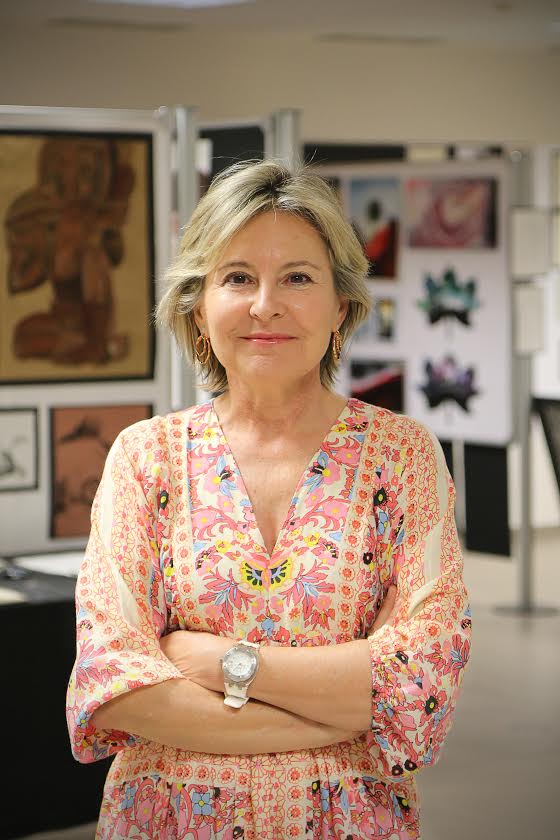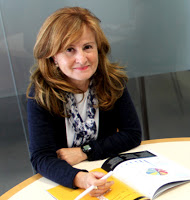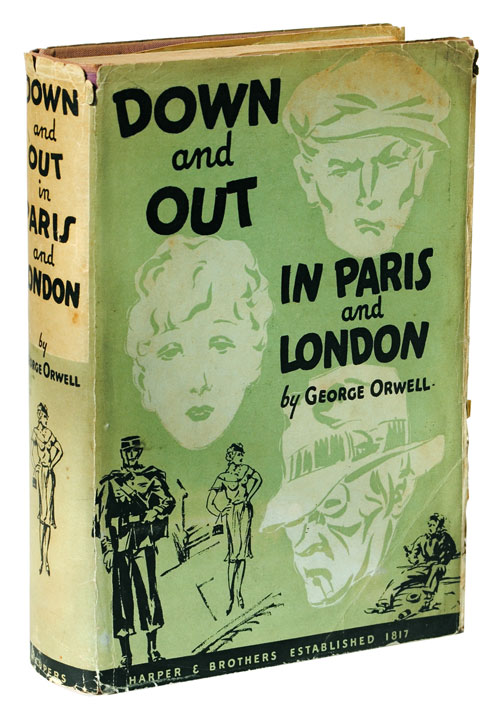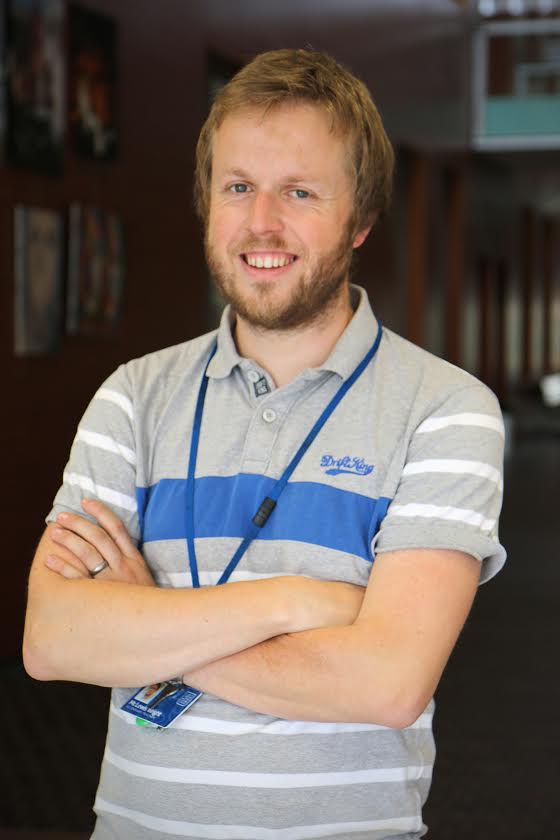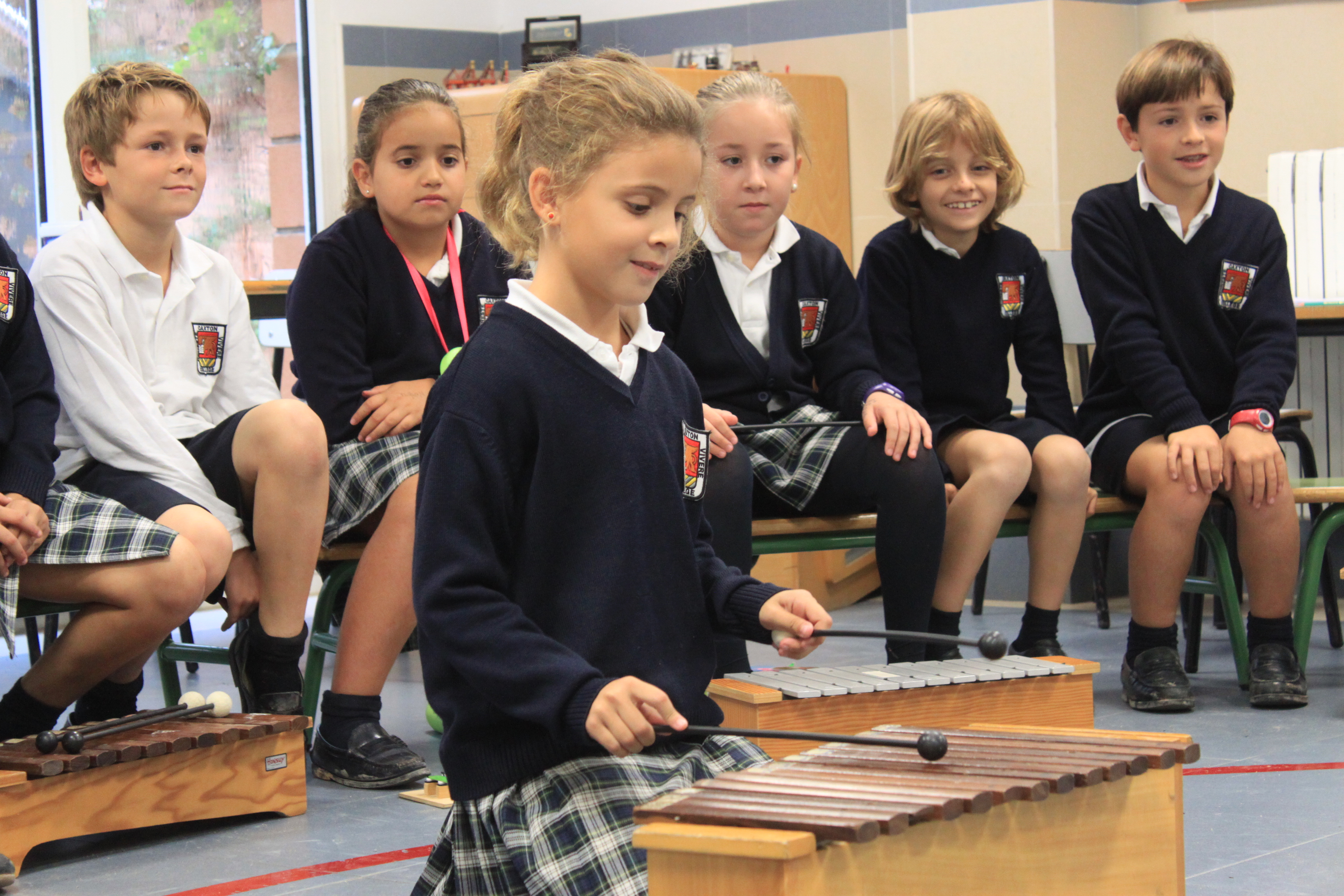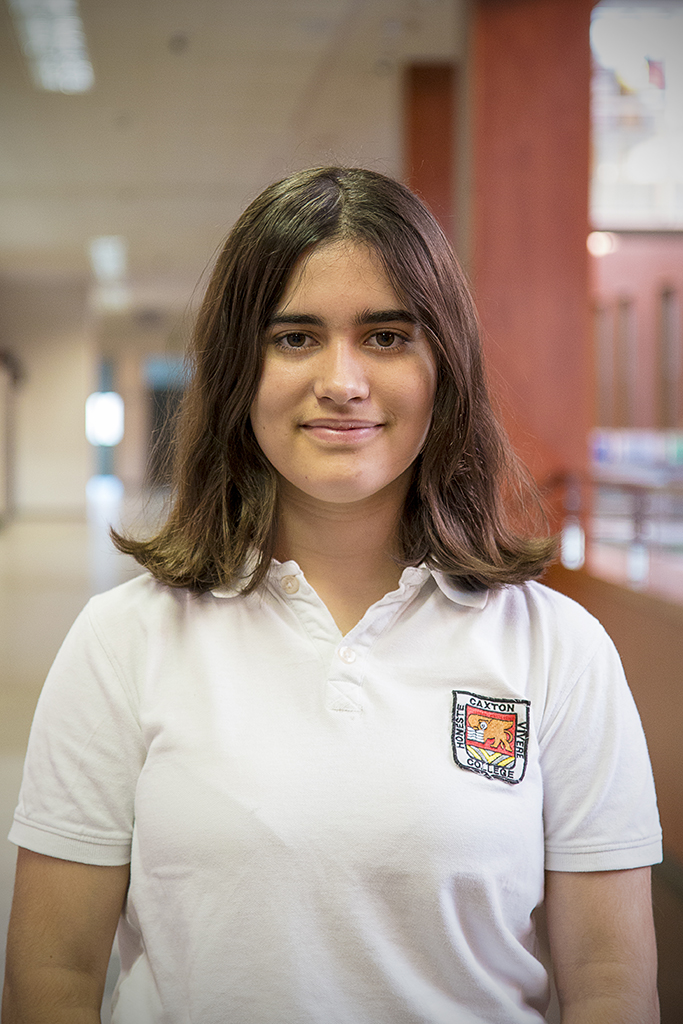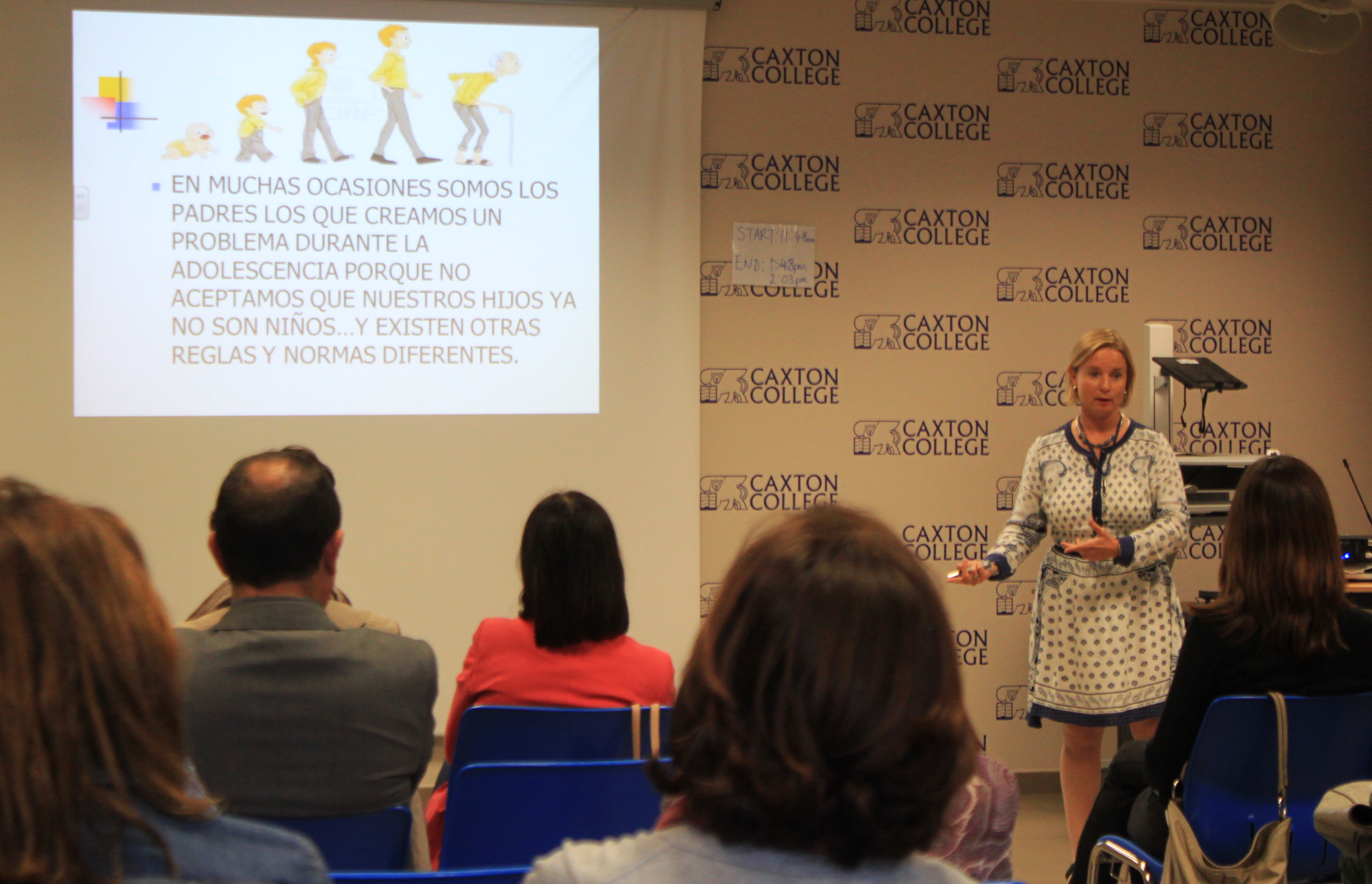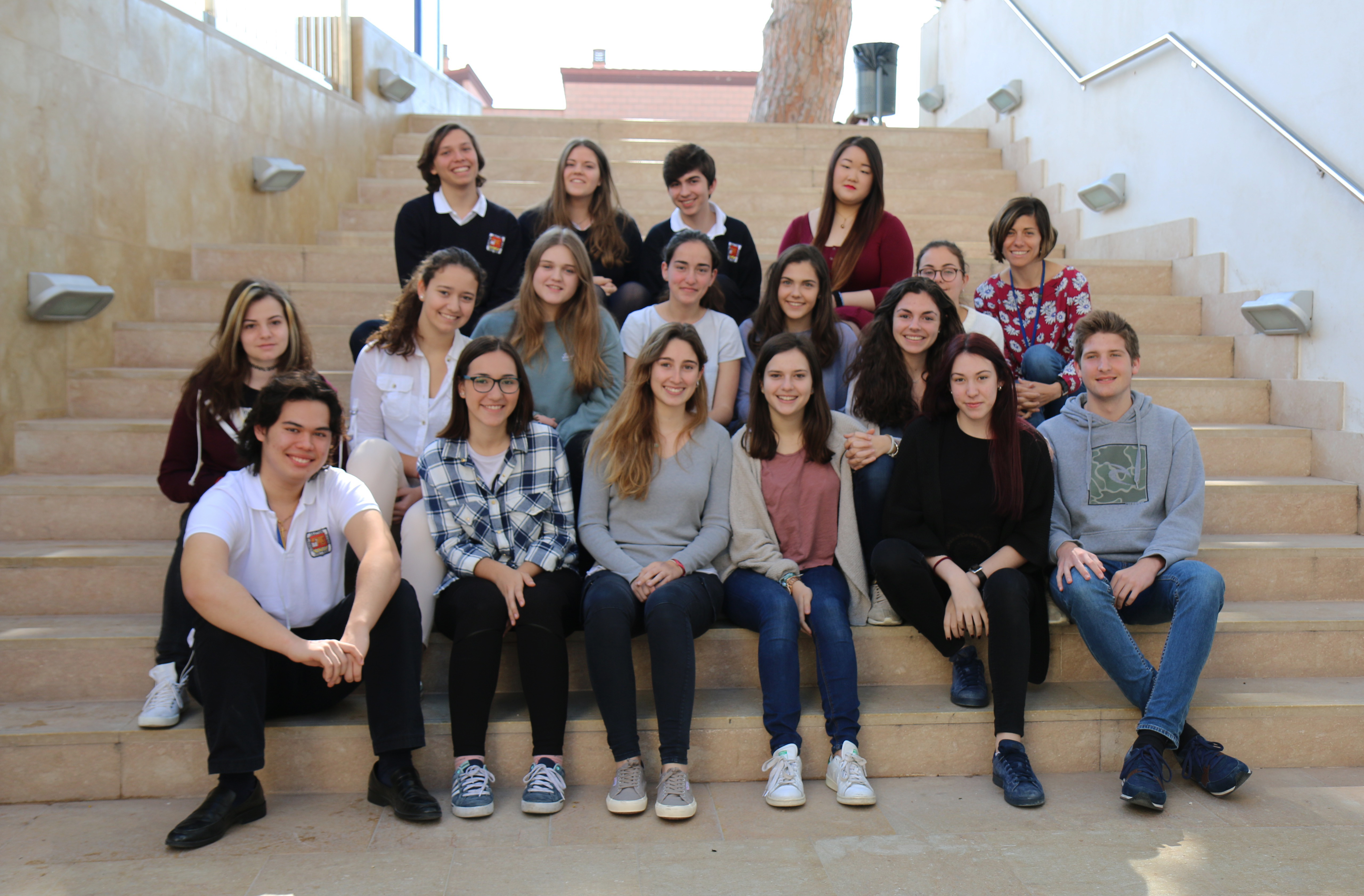
Old Caxtonian Amparo V.
Amparo Vanaclocha, una brillante Old Caxtonian, se acaba de licenciar en Ingeniería Biomédica en la Universidad Politécnica de Valencia formando parte de la primera promoción de esta novedosa especialidad profesional. Su último cuatrimestre lo ha cursado en Montana State University (Estados Unidos) donde además ha realizado su Trabajo Fin de Grado obteniendo la máxima calificación. En esta entrevista comenta la huella que ha dejado Caxton College en su paso por la universidad así como sus planes profesionales futuros.
¿Cómo valoras tu experiencia educativa en Caxton College en relación con las asignaturas de cultura española (Lengua, Literatura, Historia…)?
Creo que son indispensables para cualquier persona que haya vivido aquí. Son cultura española, y han sido especialmente importantes para formarme como persona, así como para conocer y apreciar nuestro origen y nuestro entorno, y poderlo valorar allá donde nos lleve la vida.
A la hora de iniciar tus estudios universitarios en Valencia, ¿sentiste que estabas menos capacitada que otros estudiantes que venían de colegios españoles?
Jamás. De hecho, yo fui de la generación en la que durante Year 12 y 13 (Bachillerato), tuvimos la oportunidad de estudiar cuatro A-levels además de las “asignaturas españolas”. En otras palabras, yo cursé las cuatro ciencias correspondientes al currículum británico además de Biología y Química con Ms Vila. Esto hizo que estuviese mejor preparada para la universidad que otros de mis compañeros que venían de colegios españoles, y no solo porque había tratado más temas y en más profundidad, sino porque era capaz de verlos desde más puntos de vista. Es cierto que el cambio es brusco, lo es para todos, pero con dedicación y esfuerzo esta diferente forma de estudiar se puede sobrellevar, e incluso sacar partido de ella.
¿Qué crees que ha sido lo mejor que Caxton College te ha dado para alcanzar un triunfo universitario como el que has logrado?
Sin duda alguna lo mejor ha sido la constancia y dedicación que los profesores exigían en todo cuanto hacíamos, ya fuese un proyecto, trabajo o ejercicio de clase. Al hacerlo, nos obligaban a poner todo nuestro esfuerzo en desarrollarlo lo mejor que pudiésemos. Además, me ha ayudado a poder trabajar en equipos con personas de mentalidades diferentes y creencias aún más dispares. Esto me ha sido muy útil, especialmente estos últimos meses que he pasado en la Montana State University (Estados Unidos) para cursar el último cuatrimestre y realizar allí mi Trabajo Fin de Grado.
Sin lugar a duda, esta constancia, dedicación y exigencia de los profesores, y el ambiente internacional del colegio, han sido la clave del éxito que me ha permitido acabar la carrera a Estados Unidos y obtener allí la máxima calificación.
¿Recuerdas si Caxton College te ayudó de alguna manera a encontrar tu vocación?
Lo recuerdo como si fuese ayer. En Year 12, y al comienzo de Year 13, pensaba que mi vocación era ser médico. Un día de febrero nos fuimos todos los de Biología y Química a la Facultad de Medicina de la Universidad de Valencia. Fue allí donde a mitad de la visita me di cuenta de que aquel lugar no era para mí, y así se lo dije tanto a Ms Vila como a mis padres. Por suerte, Ms Vila convenció a Ms Cristina Pérez (la psicóloga de Secundaria del colegio) para que me permitiese ir a ver la Universidad Politécnica de Valencia a mediados de abril. Y menos mal que así fue, pues al llegar a la universidad y ver el cartel de Ingeniería Biomédica fue cuando supe cuál era mi vocación. Y desde entonces no puedo ser más feliz con mi elección.
Ahora que has pasado por la universidad y quizá ya hayas tenido algún contacto conel mundo laboral ¿Qué es lo que más valoras de la enseñanza británica que más te ha ayudado en estos ámbitos?
Es un currículum muy centrado en el trabajo personal, no es solo estudio sino aplicación práctica de lo aprendido, algo muy diferente del currículum español. Me ha enseñado a ser capaz de acometer los problemas desde varios puntos de vista y de varias formas diferentes. Esto es muy importante, pues si uno se queda atascado en un problema debe ser capaz de abordarlo de una forma distinta para tener buenos resultados. Además, me ha ayudado a no rendirme jamás, independientemente de lo difícil que sea el problema o la cuestión en la que esté trabajando.
Además, cada etapa del currículum británico finaliza con un examen estatal con notas comparables en todo el mundo, lo que le da una calidad añadida que no tiene el currículum español, donde las notas que predominan son las del centro de estudios. Es por ello que es valorado internacionalmente, y me ha abierto las puertas a ampliar estudios en otras universidades extranjeras.
Finalmente, el nivel de inglés con el que terminamos es una excelente tarjeta de presentación en cada entrevista para universidades o empresas internacionales.
Háblanos un poco de la carrera que has realizado. Es fruto de la nueva sociedad transversal y multidisciplinar…
Sí, así es. La Ingeniería Biomédica es una disciplina donde se pretende proporcionar soluciones ingenieriles a problemas tecnológicos que aparecen dentro de la Medicina. Por tanto, como ingenieros biomédicos debemos poder entendernos tanto con médicos como con ingenieros, dos grupos totalmente diferentes tanto en la forma de expresarse como en la forma de entender su entorno.
La Ingeniería Biomédica puede dividirse esencialmente en tres grupos. El primero de ellos está integrado por aquellos ingenieros biomédicos que se dedican a la obtención y análisis de imágenes. A las imágenes se les aplican métodos probabilísticos para conocer su significado médico, fusión de 2D y 3D, y cualquier otra maniobra que incluya el manejo de imágenes.
En el segundo de los grupos están aquellos ingenieros biomédicos que se dedican a las tecnologías rehabilitadoras y aparataje médico (excepto imagen). Su trabajo es mejorar toda la tecnología que hay detrás de los sistemas que se usan en la Medicina y Rehabilitación.
El último grupo está formado por aquellos que se dedican al diseño y creación de prótesis internas o externas por medio de programas matemáticos nada triviales pero muy chulos. Personalmente pertenezco a este grupo, y cómo no, me parece el más interesante de todos…
Particularmente, ¿qué parte te ha resultado más dura?
La verdad, lo más duro fue el primer año, pues no estaba acostumbrada a la forma de preguntar ni de estudiar que tienen en la Universidad Politécnica. Es cierto también que es una universidad muy dura, pero muy bien considerada no solo en España sino internacionalmente, y que todos los estudiantes, sin excepción, tuvimos problemas.
Además, éramos la primera promoción, unos conejillos de indias con los que ensayar las asignaturas (de hecho, han cambiado mucho tanto contenidos como profesorado en estos cuatro años). Por lo demás, me lo he pasado muy bien, con compañeros tan entusiastas como yo, que nos atrevimos con lo desconocido.
¿Tienes alguna especialidad por la que te gustaría decantarte profesionalmente?
Como he mencionado previamente me estoy especializando en protésica, ya he hecho alguna práctica y mi Trabajo Fin de Grado está basado en esa materia. Pero no me quiero quedar solo ahí. De hecho, me encantaría también estudiar un Master en Biónica, aunque esto puede tardar algún año más porque primero me gustaría hacer el Máster en Ingeniería Biomédica de la Universidad Politécnica de Valencia, ya que es muy completo y muy interesante en mi campo.
¿Cómo ves tu futuro profesional?
De momento no tengo prisa por tener un trabajo fijo, creo que debo aprovechar para terminar de formarme. Pero ya conozco un par de empresas que están interesadas en fichar Ingenieros Biomédicos para desarrollar prótesis propias.
Amparo Vanaclocha, one of our most brilliant Old Caxtonians, has just graduated in Biomedicine from the Polytechnical University of Valencia, becoming a member of the first cohort to complete this new professional specialty. Her last four months were completed in Montana State University (in the United States), where she also did her Final Year Project, obtaining the highest possible grade there. In this interview, she talks about the influence that Caxton College has left on her, both on her journey through University, as well as her future plans for her future career.
How would you rate your educational experience in Caxton College, in relation to the Spanish cultural subjects (Spanish Language, Literature, History, etc.)?
I think that they are indispensable for anyone who lives here. They are a part of Spanish culture, and have been particularly important in helping to shape who I am as a person, as well as learning about and appreciating our origins and environment, and learning how to value them wherever life may take me later on.
When you started your University studies in Valencia, did you feel any less prepared than other students who had attended Spanish schools?
Never. In fact, I was one of the first generation who, in Years 12 & 13, had the opportunity to study 4 A-levels as well as the “Spanish Subjects”. In other words, I studied the four science subjects corresponding to the British curriculum as well as Biología and Química with Ms Vila. This made me better prepared for University than some of the other students who came from Spanish schools, and not just because I had studied more topics and in more depth, but also because I was able to see things from other points of view. While it is true that the change is quite radical (I think everyone would agree on this), with dedication and effort this different way of studying is one that we can not only learn to cope with, but also benefit from.
What do you think was the best thing that Caxton College gave you to help you to triumph at University as you have done?
Without a doubt, the best thing I learnt was the perseverance and dedication that our teachers expected from us in everything we did, whether it was a project, coursework or class exercises. In doing so, we were always required to make the very best effort that we could.
It also helped me to be able to work in teams with people of different mentalities, and even more disparate beliefs. This was really useful to me, especially these last months which I spent in Montana State University (USA) to complete the last four months of my degree and work on my Final Year Project.
I am certain that the perseverance, dedication and high expectations from the teachers, as well as the international atmosphere at the school, were key in helping me to finish my degree in the USA and to get the highest possible grades there.
Do you recall if Caxton College helped you in any way to find your vocation?
I remember it as if it were yesterday. In Year 12, and at the start of Year 13, I thought that my vocation was going to be Medicine. One day in February all the Biología and Química students visited the Faculty of Medicine in the University of Valencia. That was where, halfway through the visit, I realised that this place was not for me, and later I told both Ms Vila and my parents. Fortunately, Ms Vila was able to persuade Cristina Pérez (the Secondary Psychologist) to allow me to visit the Polytechnical University of Valencia that April. And what a good thing it was, because as soon as I arrived at the University and saw the sign for Biomedical Engineering, I knew what my true vocation was. Since then, I couldn’t be happier with my choice.
Now that you have finished University, and have maybe had some contact with the working world, what do you appreciate most about the British education, that has helped you most in these two spheres?
The curriculum is very focussed on individual work, it is just not about studying but also about applying what you have learnt, which is very different from the Spanish curriculum. It taught me how to tackle problems from different points of view, and in a variety of ways. This is very important, because if you get stuck on a problem, you should be able to approach it from a different angle in order to get better results. It has also helped me not to give up, no matter how difficult the problem or issue on which I may be working.
I would also add that each stage of the British curriculum ends with an official exam with grades that are comparable worldwide, giving the education an added quality that the Spanish curriculum does not have, because here your grades are predominantly those of the centre where you study. For this reason, a British education has international value, and has opened many doors to me, as it broadened my possibilities for studying in Universities abroad.
Finally, our level of English when we leave is an excellent asset in any interview for a University, or for an international company.
Let’s talk a bit about the degree course you have just completed. It has come about thanks to the new multi-disciplinary, interconnected society of today….
Yes, exactly. Biomedical Engineering is a discipline which aims to provide engineering solutions to technological problems which appear in Medicine. Therefore, as Biomedical Engineers, we have to be able to understand both medical staff as well as engineers, two totally different groups both in the way in which they express themselves as well as the way in which they understand the world around them.
Biomedical Engineering can basically be divided into three groups.
The first of these is made up of those biomedical engineers who work on obtaining and analysing images. They apply probabilistic methods to images in order to understand their medical significance, a fusion of 2D and 3D, as well as any other manoeuvres which involve handling images.
In the second group are the biomedical engineers who are dedicated to rehabilitative technologies and medical gadgetry (except images). Their work is about improving the technology behind the systems used in Medicine and Rehabilitation.
The last group is made up of those who work on designing and creating internal or external prostheses through mathematical programmes which are not easy, but are really cool. I myself belong to this group and, of course, find it the most interesting one of all!
For you, what was the hardest part of your degree course?
To tell the truth, the hardest part was the first year, not being used to the way of questioning or the way of studying in the Polytechnical University. While it’s true that it is a very tough University, it’s very well regarded not only in Spain but also internationally, and all the students, without exception, had problems. Added to this, we were the first cohort, and were the guinea pigs on whom they tried out new subjects (as a matter of fact, the both the content and teaching staff have changed a lot in the last four years). Apart from that however, I really enjoyed it, with fellow students who were equally enthusiastic, and who were venturing into the unknown.
Is there any specialty that particularly attracts you?
As I mentioned before, I am specialising in prostheses, and to this end I have already done some practical work as well as basing my Final Year’s Project on this subject. But I don’t want to stop there. I would actually love to study for a Masters in Bionics, although this might take a bit longer as first I would like to do a Masters in Biomedical Engineering in the Polytechnical University of Valencia, as it is very complete and of great interest to my field of study.
How do you see your professional future?
For the moment I am in no hurry to find a permanent job, as I think I should first complete my studies while I can. But I already know of a couple of companies that are interested in contracting Biomedical Engineers in order to develop their own prostheses.
